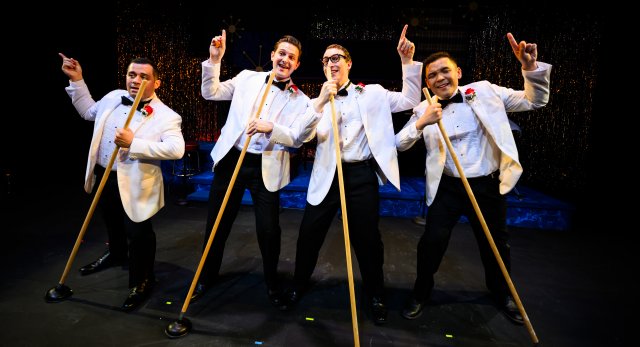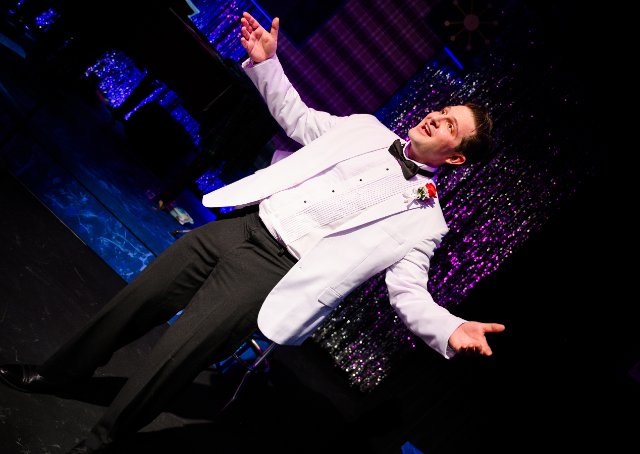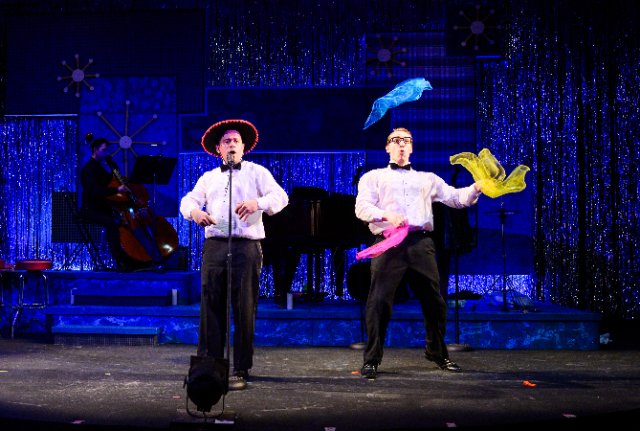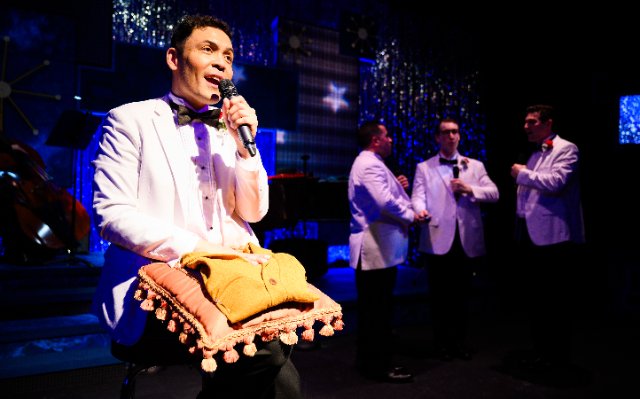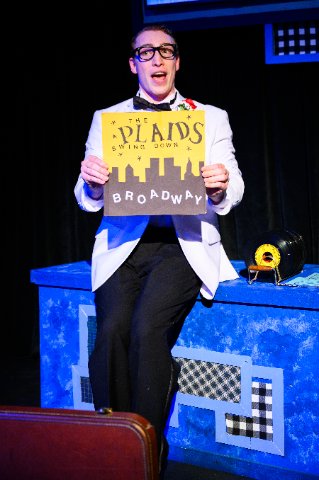Forever Plaid
42nd Street Moon's Take On This Revue of Male Pop Quartets
By: Victor Cordell - Apr 23, 2024
Four-part vocal harmony dates at least to the Baroque era, achieving its artistic apex with 19th century Romantic opera, evidenced by multi-lyrical, polyphonic quartets (i.e., having multiple lyrical lines and melodies simultaneously), like the beautiful "Bella figlia dell'amore" ("Beautiful daughter of love") from Verdi’s “Rigoletto.”
Barbershop quartets of all male voices reached broader markets in the United States in the late 19th century and beyond. Finally, starting in the 1930s with the Mills Brothers and the Ink Spots, male pop music ensembles would populate the hit music charts and the air waves. The popularity of male groups with mellow sound and close harmonies would peak in the ‘50s and early ‘60s with memorable music from The Ames Brothers to The Lettermen, and many groups with Four in their names.
Against this most recent backdrop, writer Stuart Ross created “Forever Plaid,” a musical revue of mostly four-part male harmony songs from the pop era, wrapped in a tissue thin, but funny scenario comprised of unrelated skits mostly built around songs. The show’s appeal is revealed by its long legs, having run off-Broadway for over four years and spawning successful revivals worldwide. 42nd Street Moon’s winsome production, stage and music directed by Daniel Thomas, brims with nostalgia, laughs, and good sounds.
The central conceit is that, having performed only at the likes of Moose Lodges, dive bars, and weddings, the four aspiring singers die in a car accident. So, their show takes place on a vastly bigger stage - their return from the ether for one last concert.
But rather than a simple stand-and-deliver from behind four microphones, the young men are in motion. Brittany Monroe’s individual dance skits may be simple, but the choreography works well and runs constantly from curtain rise to curtain fall. And of course, humorous obstacles always block the way of the group, like attacks of asthma and nose bleeds.
Although some of the cast’s voices are better than others, the good thing about ensembles is that even modest voices can add up to a great overall sound, and this is the case with The Plaid. The show opens and closes with two classics of the genre, both having had popular versions by The Four Aces – “Three Coins in the Fountain” and “Love is a Many Splendored Thing.”
However, the “close ups” are often in songs delivered as solos. Edu Gonzalez-Maldonado as Jinx, sings “Cry,” popularized by the Johnny Ray recording in 1951. Up to that point in the show, Jinx was portrayed as diffident and his voice didn’t come across much in the harmonies. So, imagine the surprise when he grabs a standing mic; dips it almost to the floor a la Elvis; and belts out a confident and worthy version with a powerful voice and good range as well.
Kevin Singer (his real last name?) as Frankie didn’t seem to be in particularly good voice to start but revealed fine tone and variation later on. In the funniest skit, he sings “Lady of Spain” while the other three perform a Cliff Notes, Keystone Kops, slapstick version of the Ed Sullivan Show in three minutes and eleven seconds. There’s the magician, the juggler, the opera singer, and of course, the memorable puppet character, Topo Gigio.
Another highlight is “Perfidia” which Justin P. Lopez as Sparky gets to sing lyrics in both English and Spanish. His voice is pleasant but seemed underpowered in this performance. He does however lead one of the funnier dance sequences as well. Finally, with the lowest singing voice of the group, Matt Skinner as Sludge (!) soloed with his version of “16 Tons.”
Although a few curious choices fill the playlist, a number of other classics from the period capture audience enthusiasm, including a medley of Perry Como songs and a medley of calypso numbers. To ensure involvement by the patrons, the Jamaican song “Matilda” included audience sing-a-long participation. Also, a brave theatergoer was brought on stage to lend one finger to help play a song that is an early right of passage to any wannabe piano player, “Heart and Soul.”
For this Sunday matinee, the audience was the expected highly homogeneous blue-haired crowd, this reviewer and his wife included. But it was just the right generation to soak in the nostalgia of the musical and appreciate the enjoyable production.
“Forever Plaid” is written by Stuart Ross with music by various composers and librettists, is produced by 42nd Street Moon and plays at Gateway Theatre, 215 Jackson Street, San Francisco, CA through May 5, 2024.

